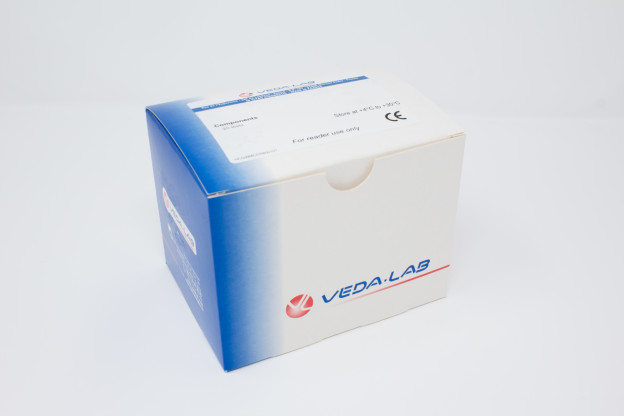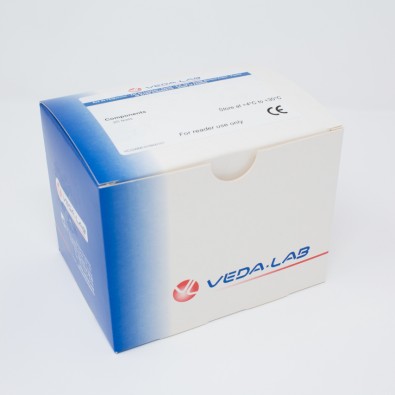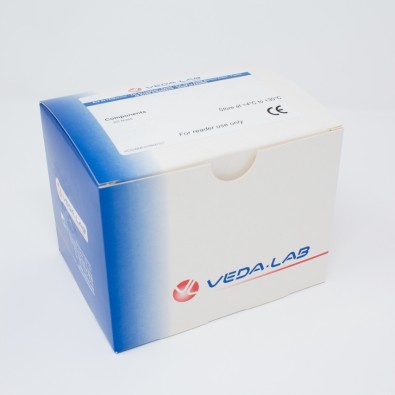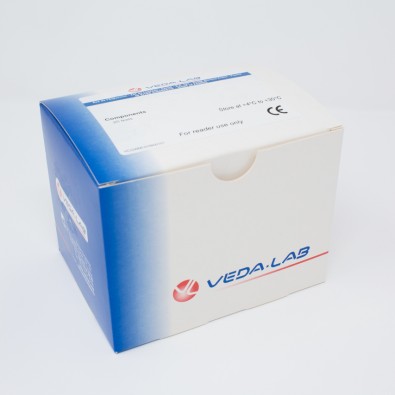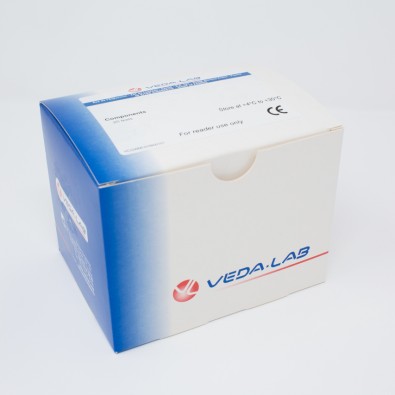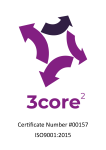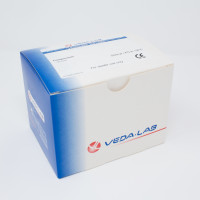
Check-1 CEA Quantitative Rapid Test for Easy Reader+® 15mins
Check-1 CEA Quantitative Rapid Test for Easy Reader+® 15mins
We're always working hard to give our customers as much information on products and the best price possible. If you need any assistance or would like a quote please contact us and we will be happy to help
-
Product Summary:
Check-1 CEA Quantitative Rapid Test Kit for Easy Reader+® 15mins (45091) is an immunochromatographic rapid test for the quantitative detection of CEA (carcinoembryonic antigen) in whole blood, serum or plasma. Manufactured by VEDALAB.
Carcinoembryonic antigen (CEA) as well as alpha-fetoprotein (AFP) is produced during fetal development. After birth, the production of CEA stops and remains undetectable in normal healthy adults. However onco-fetal antigens may appear due to the de-repression of genes that were normally expressed only during early life. As secreted antigens (CEA and AFP) do not contribute significantly in immunity against tumours, the role of these antigens, called neoantigens, in immuno-surveillance is questionable. CEA levels in normal non smoker people range up to 2.5 ng/mL and to 5 ng/mL for smokers group but become elevated ( > 10 ng/mL) in a variety of cancers: uterine (1), lung (2), breast (3), colorectal (4) and typically among tobacco smokers (5).
Patient management is the main use of these tumour neo-antigens. The presence of CEA in the circulation has been exploited for both diagnostic and therapeutic purposes. The measurement of CEA does not indicate necessarily cancer development as levels of this antigen may also rise in some non-malignant conditions, such as chronic cirrhosis, pulmonary emphysema or heavy smoking. Where curative surgery is contemplated, pre-operative CEA levels may have prognosis significance. High levels of CEA in gallbladder can indicate the presence of hepatic metastases in patient undergoing curative operation for colorectal carcinoma (6). Furthermore serum CEA level was found to be a valuable prognostic indicator for advanced breast cancer (7). CEA is classically measured using colorimetric ELISA sandwich methods and its determination requires specific equipment, trained operators and is time consuming.
CEA-CHECK-1 is a rapid quantitative test for the measurement of CEA in serum, plasma or whole blood samples. The method relies on binding between anti-CEA monoclonal antibodies fixed on the dye conjugate and CEA in the sample. When CEA is present in the sample, the conjugate-antigen complex binds to the monoclonal antibodies coated on the test membrane. A sample that contains sufficient level of CEA will induce the formation of a pink-rose coloured band in the test region (T) while a negative sample will only allow the formation of the pink-rose control band (C) indicating that the test is functioning correctly.
-
Product RangeProduct Code45091Product NameCheck-1 CEA Quantitative Rapid Test for Easy Reader+® 15minsProduct CategoryProduct BrandProduct Size1 x 20 testsProduct Storage4°C to 30°CProduct IVD Registration StatusCE-Mark - Professional Use
